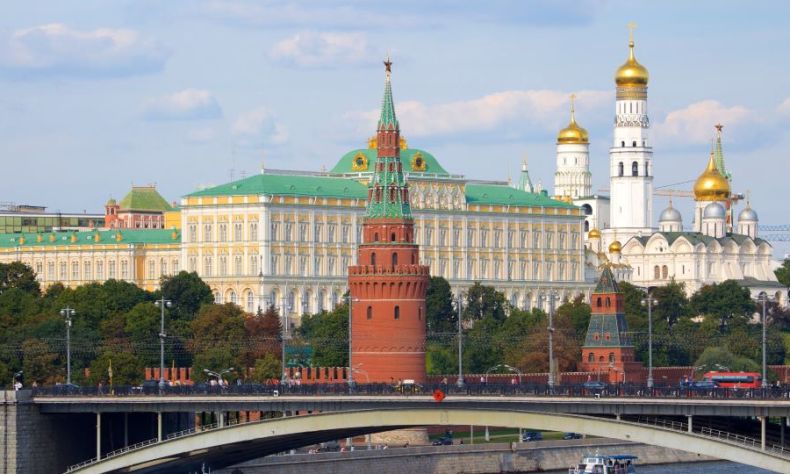
The Kremlin confirmed on Monday that Bashar al-Assad, the ousted head of the Syrian regime, along with his family, has been granted asylum in Russia. The announcement comes in the wake of a swift and unexpected collapse of Assad’s regime, marking a significant moment in the 13-year-long Syrian civil war.
Speaking to reporters in Moscow, Kremlin spokesman Dmitry Peskov stated, “Of course, such decisions cannot be made without the head of state. It is his (Russian President Vladimir Putin) decision.” Peskov’s remarks underscore the direct involvement of President Putin in the matter, reflecting the broader geopolitical calculations driving Moscow’s move.
Peskov further clarified that there are no immediate plans for a meeting between Putin and Assad, adding, “There is also nothing to tell about his current whereabouts.” This reticence reflects the sensitivity surrounding Assad’s asylum status and its implications for Russia’s role in the region.
The fate of Russia’s military bases in Syria, including the strategically significant facilities in Tartus and Khmeimim, remains uncertain. Peskov noted, “This is all a subject for discussion with those who will be in power in Syria.” He emphasized the need for dialogue with the emerging leadership in Damascus, cautioning that the current “period of transformation and extreme instability” requires a patient approach.
Moscow has initiated efforts to contact parties capable of ensuring the security of Russian forces and infrastructure in Syria. In the meantime, the Russian military has heightened precautions to safeguard its personnel and assets.
The collapse of Assad’s regime has also cast doubt on the future of the Astana format talks, which were originally designed to facilitate a peaceful resolution to the Syrian conflict. While Peskov acknowledged that the format has “lost its original purpose,” he affirmed its continuing relevance as a platform for dialogue and political consultation.
Russia remains engaged in discussions with Türkiye and other regional stakeholders about the evolving situation in Syria. These talks are expected to gain urgency as the new Syrian leadership begins to assert its authority over the country.
Earlier reports from Russian state news agency Tass revealed that Assad and his family arrived in Moscow over the weekend. Citing a Kremlin source, Tass reported that the decision to grant asylum was made “guided by humanitarian considerations.” The choice of Russia as a refuge reflects the close ties between Assad’s government and Moscow, which has been a critical ally throughout Syria’s prolonged conflict.
Assad’s departure from Syria follows a series of rapid military and political developments that culminated in the fall of Damascus on Sunday. On November 27, anti-regime forces reignited hostilities in rural areas west of Aleppo, launching a lightning offensive that saw significant territorial gains within days. Defecting military units provided crucial support to opposition forces, enabling them to capture key cities before advancing on the capital.
The swift collapse of Assad’s regime caught many observers by surprise, given the relative stability of the government in recent years. Analysts attribute the regime’s downfall to a combination of internal dissent, economic collapse, and renewed coordination among opposition groups.
The asylum granted to Assad raises questions about Russia’s long-term strategy in Syria. Having invested significant resources to prop up the Assad regime, Moscow now faces the challenge of navigating a post-Assad Syria while protecting its strategic interests.
The fall of Assad also presents a complex challenge for regional powers, including Türkiye, Iran, and Gulf states, all of whom have vested interests in Syria’s future. As Russia engages in dialogue with these stakeholders, the international community will closely watch how the balance of power shifts in a country that has been a focal point of global geopolitics for over a decade.
The renewed fighting has exacerbated an already dire humanitarian situation in Syria. Millions remain displaced, and the collapse of central authority in Damascus has further strained access to essential services and aid. International organizations have called for urgent action to address the needs of vulnerable populations.
Rebuilding Syria will require not only massive financial investment but also a comprehensive political settlement that can reconcile the country’s deeply fractured society. The task ahead is monumental, with questions about governance, justice, and accountability looming large.
The Kremlin’s announcement has drawn mixed reactions from the international community. While some have criticized Russia’s decision to shelter a leader accused of widespread human rights abuses, others view it as a pragmatic move to ensure a degree of stability during Syria’s transitional period.
Western governments, which have long opposed Assad’s rule, are expected to reassess their policies toward Syria in light of the regime’s collapse. Meanwhile, regional powers will likely intensify efforts to shape the outcome of Syria’s transformation.






